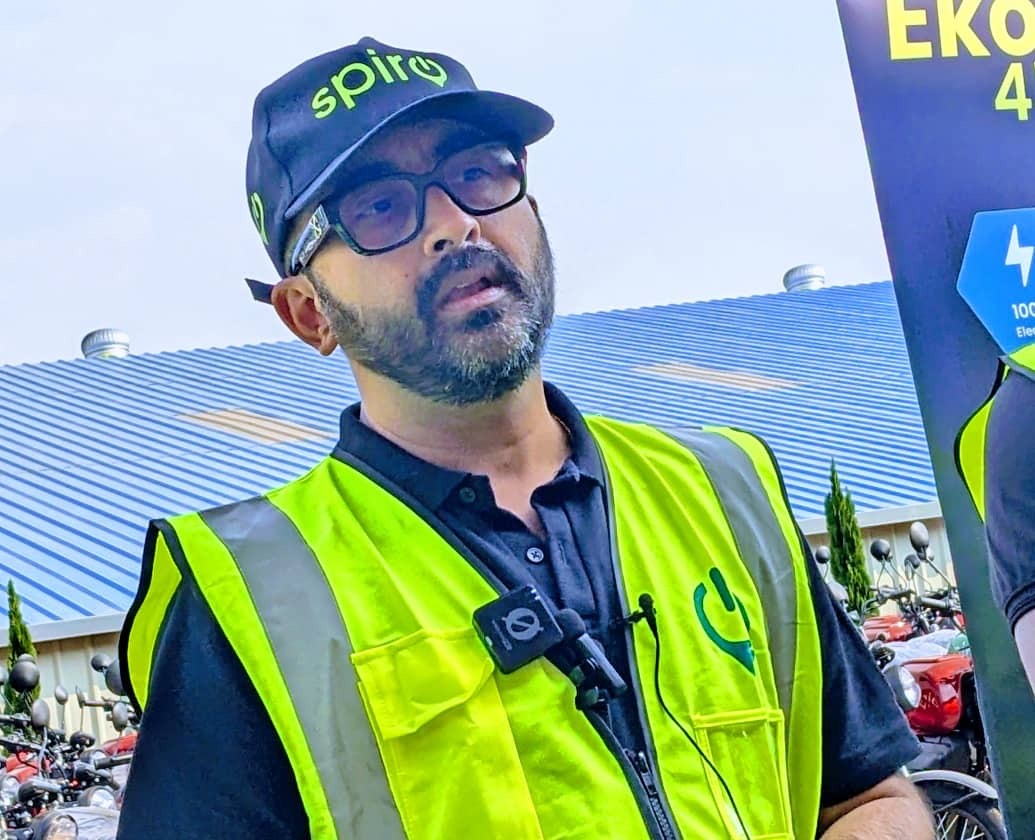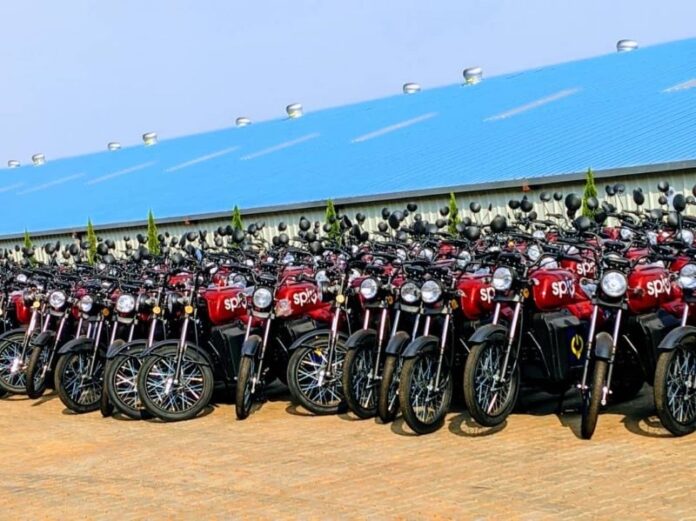The management of Spiro Rwanda, a company that manufactures electric motorcycles, has stated that it has simplified the process for Rwandans to acquire environmentally friendly motorcycles in large quantities and at an affordable price.
This was announced by the CEO of Spiro Rwanda during a press briefing held on Friday, July 27, 2025, at the company’s headquarters in Masoro, Gasabo District, Kigali.
During the discussion with journalists, Spiro’s leadership highlighted how their motorcycles are more cost-effective compared to fuel-powered bikes, which also harm the environment. Since Spiro’s motorcycles run on electricity, they help reduce air pollution by cutting down on harmful emissions.
Commitment to Green Mobility

Spiro’s CEO, Kaushik Burman, emphasized their commitment to replacing fuel-powered motorcycles with electric ones to support Rwanda’s environmental protection goals.
He said: “These motorcycles do not emit polluting gases, significantly reducing air pollution and contributing to cleaner air in Rwanda, a country committed to achieving its environmental targets under the Paris Agreement. Replacing conventional fuel-powered motorcycles with electric ones is a major victory.”*
Kaushik further explained that Spiro Rwanda has implemented an accessible pricing model tailored to the region and Rwanda’s economic context.
“Whether you buy our motorcycles outright, lease them through flexible payment plans, or access them via cooperatives, Spiro ensures that Rwandan motorists and others can afford electric motorcycles as a sustainable transport solution.”
Expansion and Impact
To scale its operations, Spiro has established offices and charging stations across different provinces and in Kigali.
In countries where Spiro operates, including Rwanda, there are currently 18,000 motorcycles and 40,000 batteries in circulation, with frequent battery swaps facilitated through over 600 stations.
By making eco-friendly motorcycles more accessible, Spiro Rwanda demonstrates its commitment to promoting sustainable industrialization in Africa, with long-term positive impacts on the environment.



